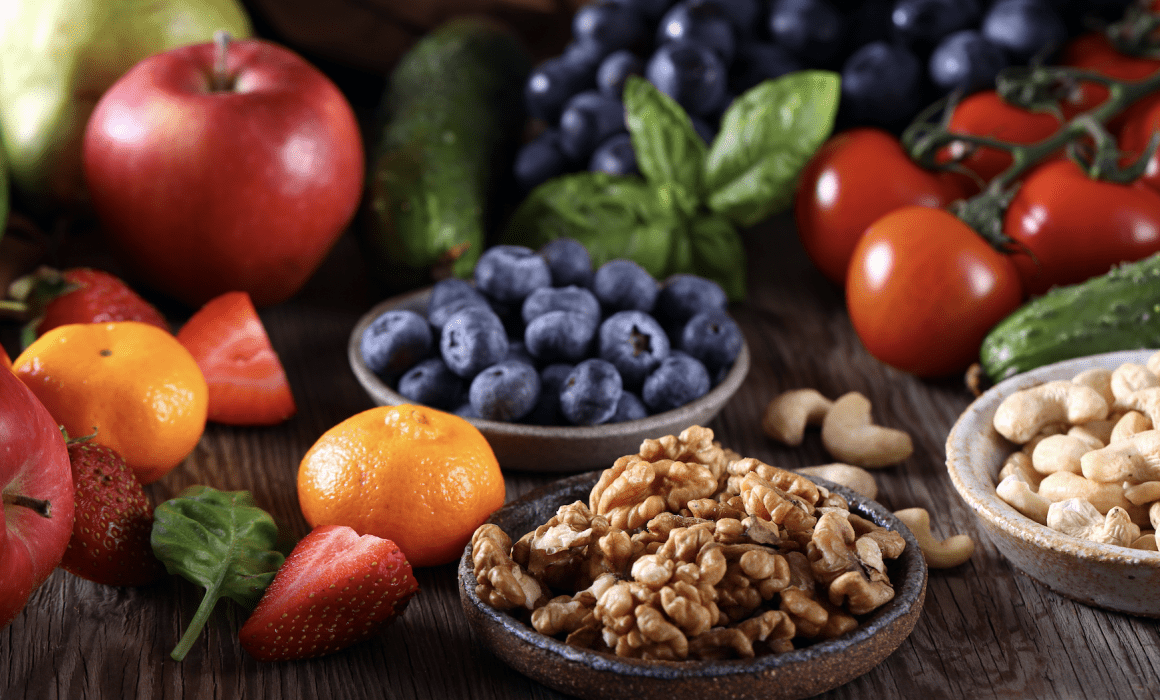Foods to eat or to avoid with Hashimoto’s
What are the best foods to eat (and avoid) to support your thyroid function, gut health, and immunity?
FOODS TO EAT
Fish and shellfish are high in zinc and iodine, two of the most important nutrients for thyroid function.
They are also a good alternative to meat, which can be inflammatory if eaten too often.
To reduce your exposure to mercury and other heavy metals, choose mainly smaller fish (hoki, flathead, sardines, mackerel, herring) with the occasional larger fish (salmon, barramundi). In order to avoid eating fish and seafood from highly polluted waters, choose those from Australia and New Zealand.
Brazil nuts are high in selenium, which is needed for thyroid hormone conversion (T4 is converted to T3, an active form), reducing inflammation levels, and protecting the thyroid.
If you are already taking a supplement that contains selenium, eat no more than two Brazil nuts a day as too much selenium can be toxic.
Fruit and vegetables support your thyroid function as they are high in vitamins and minerals needed for thyroid function, as well as fibre to support your gut health and microbiome, and antioxidants and anti-inflammatory compounds that counteract the damage of the disease process.
As a bonus, fruit and vegetables can keep you full and satiated, which is great if you’re trying to lose weight (weight gain is common in Hashimoto’s).
Challenge: aim for 40+ different, multi-coloured, whole plant foods weekly to feed your gut flora and provide you with a wide variety of nutrients. Each different variety of a food counts as a separate food; for example green/red apples, green/red/yellow capsicum, various types of lettuce, brown/red/green rice, black/white quinoa.
Organ meats can be quite divisive. They are commonly eaten in Europe, where traditionally people chose to eat all parts of an animal to avoid waste. They are less common here in Australia, however they are incredibly rich in thyroid-friendly nutrients such as iron, zinc, selenium, vitamin A, and vitamin B12.
Why not try a good quality chicken (or duck) liver pate or a steak and kidney stew (or a gluten-free pie)? You can also try grating some liver into your mince dishes, you generally won’t notice a difference in the taste but you can enjoy the benefits (tip: partially frozen liver will be easier to grate).
Always choose organic and/or grass-fed organ meat.
FOODS TO AVOID
Gluten is the main ingredient to avoid in Hashimoto’s. It is highly inflammatory to the bowel and can exacerbate thyroid issues, including by keeping the levels of thyroid antibodies high.
Many people with Hashimoto’s (and other autoimmune conditions) also have Coeliac disease, or non-Coeliac wheat sensitivity, so gluten is often poorly tolerated.
There are many tasty and healthy alternatives to gluten-containing foods, but also many poor quality ones full of additives. Make sure to read labels or ask one of the staff at GHE, we will be happy to give you recommendations.
Food sensitivities affect gut integrity, which in turn will worsen any autoimmune condition, including Hashimoto’s. Poor gut health also means you won’t be absorbing nutrients from your food very well. Consuming foods to which you are sensitive will increase inflammation in your body.
The most common intolerances in thyroid disease are dairy, corn, eggs, and soy.
Goitrogens are foods that can interfere with the production of thyroid hormones, however, most of them are very beneficial, nutrient-dense foods. These include:
- soy products such as tofu, tempeh, soy milk, and edamame;
- cruciferous vegetables such as boy choy, broccoli, cabbage, cauliflower, and kale; and
- some fruits and starchy plants including corn, millet, pear, and sweet potato.
The trick to getting the nutritional benefits from these foods while minimising the impact on your thyroid hormones is to cook them, which removes their goitrogenic effect. Therefore, avoid kale smoothies, coleslaw, and soy milk, and instead choose stir-fry dishes, lightly steamed vegetables, and nut or oat milk.
Eating foods that are rich in iodine and selenium will also counteract the effect of goitrogens.
Processed foods are full of additives that you may be sensitive to, and can lead to inflammation.
They are also very low in nutrients and fibre, leading to blood sugar fluctuations, which can have a negative impact on your thyroid and energy levels. You may feel you need to eat more to feel full, leading to possible weight gain.
Eating them occasionally can be fine, if tolerated (check for food sensitivities), but more regularly may cause thyroid flares.
This piece is from our latest GHE Magazine; click here to view the magazine in full.





